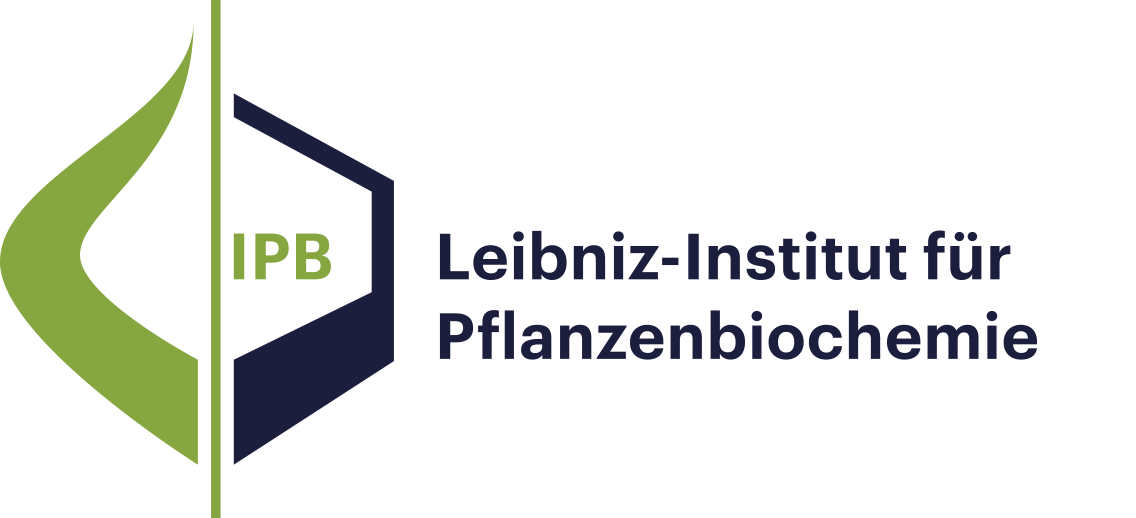- Ergebnisse als:
- Druckansicht
- Endnote (RIS)
- BibTeX
- Tabelle: CSV | HTML
Preprints
Preprints
Preprints
Leitbild und Forschungsprofil
Molekulare Signalverarbeitung
Natur- und Wirkstoffchemie
Biochemie pflanzlicher Interaktionen
Stoffwechsel- und Zellbiologie
Unabhängige Nachwuchsgruppen
Program Center MetaCom
Publikationen
Gute Wissenschaftliche Praxis
Forschungsförderung
Netzwerke und Verbundprojekte
Symposien und Kolloquien
Alumni-Forschungsgruppen
Publikationen
Preprints
Genome editing by RNA-guided nucleases in model species is still hampered by low efficiencies, and isolation of transgene-free individuals often requires tedious PCR screening. Here, we present a toolkit that mitigates these drawbacks for Nicotiana benthamiana and Arabidopsis thaliana. The toolkit is based on an intron-optimized SpCas9-coding gene (zCas9i), which conveys dramatically enhanced editing efficiencies. The zCas9i gene is combined with remaining components of the genome editing system in recipient vectors, which lack only the user-defined guide RNA transcriptional units. Up to 32 guide RNA transcriptional units can be introduced to these recipients by a simple and PCR-free cloning strategy, with the choice of three different RNA polymerase III promoters for guide RNA expression. We developed new markers to aid transgene counter-selection in N. benthamiana, and demonstrate their efficacy for isolation of several genome-edited N. benthamiana lines. In Arabidopsis, we explore the limits of multiplexing by simultaneously targeting 12 genes by 24 sgRNAs. Perhaps surprisingly, the limiting factor in such higher order multiplexing applications is Cas9 availability, rather than recombination or silencing of repetitive sgRNA TU arrays. Through a combination of phenotypic screening and pooled amplicon sequencing, we identify transgene-free duodecuple mutant Arabidopsis plants directly in the T2 generation. This demonstrates high efficiency of the zCas9i gene, and reveals new perspectives for multiplexing to target gene families and to generate higher order mutants.
Preprints
Genetic resources for the model plant Arabidopsis comprise mutant lines defective in almost any single gene in reference accession Columbia. However, gene redundancy and/or close linkage often render it extremely laborious or even impossible to isolate a desired line lacking a specific function or set of genes from segregating populations. Therefore, we here evaluated strategies and efficiencies for the inactivation of multiple genes by Cas9-based nucleases and multiplexing. In first attempts, we succeeded in isolating a mutant line carrying a 70 kb deletion, which occurred at a frequency of ~1.6% in the T2 generation, through PCR-based screening of numerous individuals. However, we failed to isolate a line lacking Lhcb1 genes, which are present in five copies organized at two loci in the Arabidopsis genome. To improve efficiency of our Cas9-based nuclease system, regulatory sequences controlling Cas9 expression levels and timing were systematically compared. Indeed, use of DD45 and RPS5a promoters improved efficiency of our genome editing system by approximately 25-30-fold in comparison to the previous ubiquitin promoter. Using an optimized genome editing system with RPS5a promoter-driven Cas9, putatively quintuple mutant lines lacking detectable amounts of Lhcb1 protein represented approximately 30% of T1 transformants. These results show how improved genome editing systems facilitate the isolation of complex mutant alleles, previously considered impossible to generate, at high frequency even in a single (T1) generation.
Preprints
Standardized DNA assembly strategies facilitate the generation of multigene constructs from collections of building blocks in plant synthetic biology. A common syntax for hierarchical DNA assembly following the Golden Gate principle employing Type IIs restriction endonucleases was recently developed, and underlies the Modular Cloning and GoldenBraid systems. In these systems, transcriptional units and/or multigene constructs are assembled from libraries of standardized building blocks, also referred to as phytobricks, in several hierarchical levels and by iterative Golden Gate reactions. This combinatorial assembly strategy meets the increasingly complex demands in biotechnology and bioengineering, and also represents a cost-efficient and versatile alternative to previous molecular cloning techniques. For Modular Cloning, a collection of commonly used Plant Parts was previously released together with the Modular Cloning toolkit itself, which largely facilitated the adoption of this cloning system in the research community. Here, a collection of approximately 80 additional phytobricks is provided. These phytobricks comprise e.g. modules for inducible expression systems, different promoters or epitope tags, which will increase the versatility of Modular Cloning-based DNA assemblies. Furthermore, first instances of a “peripheral infrastructure” around Modular Cloning are presented: While available toolkits are designed for the assembly of plant transformation constructs, vectors were created to also use coding sequence-containing phytobricks directly in yeast two hybrid interaction or bacterial infection assays. Additionally, DNA modules and assembly strategies for connecting Modular Cloning with Gateway Cloning are presented, which may serve as an interface between available resources and newly adopted hierarchical assembly strategies. The presented material will be provided as a toolkit to the plant research community and will further enhance the usefulness and versatility of Modular Cloning.

